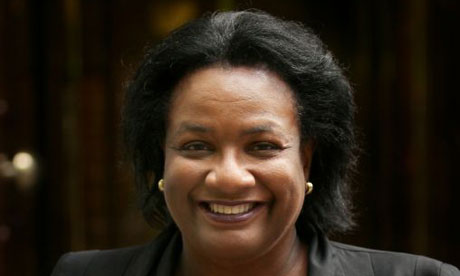
Diane Abbott, the shadow public health minister, is calling for the health select committee to launch an inquiry into government moves to put McDonald's, PepsiCo and food manufacturers such as Unilever and Kellogg's at the heart of writing policy on obesity, diet-related disease and alcohol misuse in the UK.
Abbott said she was "shocked" by revelations in the Guardian that the health secretary, Andrew Lansley, has set up five networks dominated by the food, alcohol and retail industries to write "responsibility deals" between business and government to tackle the crises of public health. She is writing to the select committee asking it to investigate. Leading public health experts joined Abbott in expressing deep concern about the government's strategy of inviting industry to volunteer measures on public health instead of taking the lead with mandatory action.
Professor Philip James, who was the lead adviser to the government on the setting up of the Food Standards Agency, and until recently chair of the International Obesity Task Force, said he was "scandalised" by the government inviting industry to help draft public health policy. "It is a major setback for the health of the nation. The sabotaging of public health by the food industry is universally recognised," he writes in the Guardian today.
The heart disease prevention expert Professor Simon Capewell joined the condemnation. He said the responsibility deals with business were a "cynical public relations smokescreen for industry interests".
Abbott accused the government of putting business interests ahead of public health. "I was shocked to discover that the health secretary is involving companies like McDonald's and PepsiCo and big manufacturers in shaping policy on nutrition. There is a wealth of literature that shows that junk food and fast food is the worst kind of diet and rather than taking advice from people who peddle it we should be helping people avoid it. This government has already in just a few months sold out the interests of the nation to the interests of big business," she said.
Capewell, of Liverpool University, was on the public health commission Lansley set up before the election to make recommendations to the Conservatives on diet-related diseases and alcohol abuse, but said that he now believes the commission was set up to suit business interests.
Capewell is gagged by a confidentiality undertaking from describing the detailed discussions of the commission. However, he said that "after calm reflection" he felt the process had been "carefully stage-managed" – the health representatives on the group were always in a minority, and those individuals were put under intense pressure to support the party line when it came to the wording of the final report.
Specifically, he says, describing foods high in fat, salt or sugar as junk food was brusquely ruled out. The strong scientific evidence that traffic light food labelling was much more effective than industry's Guideline Daily Amount scheme that Lansley has supported was repeatedly ignored.
Commenting on Lansley's new responsibility deals with business, he said: "This sort of talking shop is essentially a waste of time. It's a cynical public relations smokescreen for industry interests. It flies in the face of extensive scientific evidence about the most effective and cost-effective interventions to promote public health. Consistent lessons from the UK and internationally demonstrate that the most powerful policy levers are: legislation, regulation, and taxation of harmful substances, plus subidies for healthy options."
Capewell also described the statements from Lansley and the Department of Health about addressing inequalities in health as cynical.
"In truth, deprived groups will be hit hardest by coalition actions, not least raising VAT and pushing an individualistic approach to health promotion."
There is extensive published evidence, Capewell says, that population-wide regulatory approaches reduce health inequalities. Conversly, relying on education and screening individuals increases the social gap, he said.

